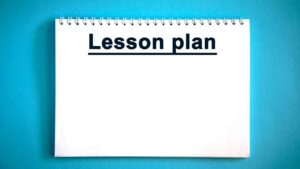by Glenn G. Dahlem, Ph.D.
An effective vocabulary builder for elementary and middle school pupils is challenging them to create parodies of familiar nursery rhymes, sayings and song lyrics, by substituting synonyms. Coming up with words of similar meaning is key to vocabulary enhancement. Then, having to present them orally promotes proper pronunciation, and writing them down is key to learning correct spelling.
Lets look at one of the best known nursery Rhymes: Three Blind Mice
Three blind mice,
Three blind mice,
See how they run,
See how they run,
They all ran after the farmer’s wife,
Who cut off their tails with a carving knife,
Did you ever see such a thing in your life as three blind mice?
Consider the following,
Trio of sightless rodents,
Trio of sightless rodents,
Observe how they scurry!
They all pursued the bucolic spouse,
She severed their appendages with cutlery!
Did you ever observe such a spectacle in all your existence
As a trio of sightless rodents?”
While the syllabic pattern of this version of “Three Blind Mice” doesn’t fit the original, making it awkward to sing, trying to do so actually serves to reinforce synonym retention.
Sometimes having something funny come up in class is distracting, and needs to be discouraged. Other times, when pupils create and have to present something they have learned in a humorous context, the subject matter is more apt to be retained. A lesson initially presented by the teacher’s attempts at presenting a “new version” of Three Blind Mice can get kids thinking.
Of course, lower grades need to pursue easier synonyms and need a little help getting started. Most boys and girls will enjoy getting up and reciting their “new versions” in front of their peers. Older pupils will be able to debate whether this or that word is really a true synonym. For example, is “cutlery” a good synonym for “carving knife,” since other kitchen tools can also fit that description?
Let’s have a bit of fun with another exercise:
Across the river and into the woods, to grandmother’s house we go.
Over the stream and into the forest, to Grandmother’s residence we proceed.”
This synonym-based vocabulary builder can feature an advanced level too, as word definitions become more difficult.
Another popular nursery rhyme is little Miss Muffe:
Little Miss Muffet, sat on her Tuffet,
Eating her curds and whey,
There came a big spider
Which sat down beside her
And Frightened Miss Muffet away.
Diminutive Miss Muffet
Sat on a clump of vegetation,
Consuming her formative cheese and liquid cheese-making residue.
Along came an arachnid,
And reclined beside her,
Frightening poor Miss Muffet away.”
This example differs from the two previous ones in that three of the original nursery rhyme words, tuffet, curds, and whey, are actually easier vocabulary words than the definitions needed to describe them. One original rhyme word, tuffet, for instance, is much more prevalent in the British rather than American dialect of English.
A bit of science education may turn up alongside language arts in the more advanced alternative rhymes, as the word arachnid did in the previous example. Consider:
Jack and Jill went up the hill,
To fetch a pail of water.
Jack fell down,
And broke his crown,
And Jill came tumbling after.
Jack and Jill ascended the higher terrain,
to procure a container of hydrogen oxide.
Jack fell down,
and fractured his skull,
and Jill came toppling after.
In an EFL classroom, this can be done to a greater or lesser extent depending on the ability of the students but it is always fun and mind-stretching and aids with memory retention. I would strongly recommend it.




